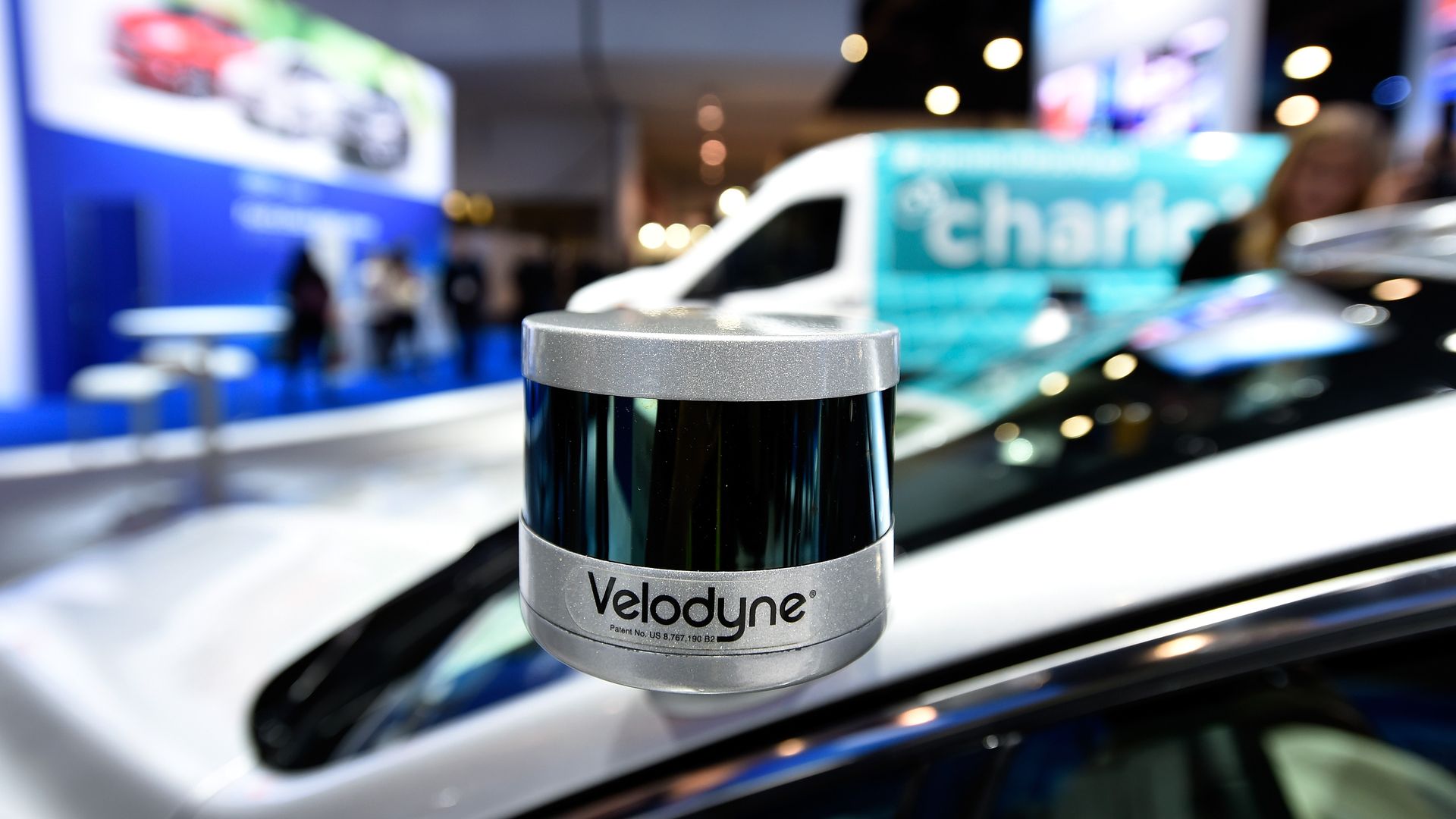To avoid driving blind, AVs will have to clear blocked sensors
Add Axios as your preferred source to
see more of our stories on Google.

A Velodyne lidar sensor. Photo: David Becker/Getty Images
Inclement weather presents numerous challenges for AVs, including sensor obstructions caused by raindrops and ice — one reason U.S. developers most often test them in states with dry, sunny weather.
Why it matters: Obstructions from environmental conditions or physical damage to the sensor can impair an AV's navigation and decision-making, but developers are still learning how best to prevent and deal with them.
Background: Vehicles on the road today benefit from a century of development to ensure people can see to drive safely. Now, vehicles must adapt so computers can reliably see, too.
Yes, but: Current prototypes of AV systems are each different and proprietary. Even when data is collected and solutions are tested in adverse conditions, the insights aren't shared.
What we're watching: Companies are taking a variety of approaches to resolving sensor obstructions: Alchemy’s hydrophobic coatings, Mighty AI’s object detection and data training, SEEVA’s sensor scanner cleaning systems, Vaisala’s real-time road conditions data, and WaveSense’s ground-penetrating radar.
- Applying coatings can reduce surface tension on sensor scanners, making it harder for moisture or debris to accumulate. But these coatings chip away over time, and developers are still working to extend their lifespan.
- Multiple, redundant cameras and sensors can portray the 3D driving environment in real time, enabling an AV to operate safely even if one sensor is impaired (more testing is needed in cases of multiple sensor impairments, which may require the AV to stop driving). Greater connectivity among AVs will also help fill in these gaps in environmental awareness.
- AVs will have to determine when a sensor is blocked and be able to clear it. Vehicles will need to trigger the delivery of hot washer fluid, air, and other cleaning mechanisms.
The bottom line: To operate safely in all environmental conditions, AVs will likely need a combination of different hardware and software solutions still in development.
Geoff Deane is the CTO of SEEVA Technologies, a company developing systems to keep AV sensors clear.
